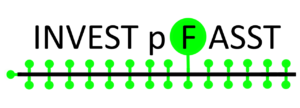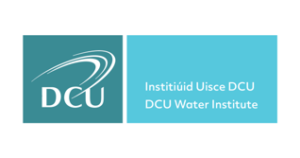Project title:
INVESTigating PFAS from Source to sink - Assessing risk to inform a PFAS STrategy in Ireland
Project Logo:

Project Summary:
Project Partners:

Environmental Protection Agency



Project team:
Our multidisciplinary project team has a variety of expert professionals which have been selected to contribute their unique perspectives and skill sets to aid in the success of this project.
Professor Fiona Regan is a professor of analytical chemistry with the school of chemical science within Dublin City University. She is also the founder and director of DCU’s water institute. Fiona’s research focuses primarily on environmental monitoring of emerging contaminants in water. Recent projects that she has been involved with have addressed novel analytical methods, passive sampling methods for monitoring low level contamination, prioritisation of chemicals measured in catchment-based monitoring, and Watch List monitoring on behalf of the EPA from 2018-2022
Dr David O’Connor is currently an assistant professor at Dublin City University within the school of chemistry. He has had numerous publications relating to environmental monitoring and modelling. David will take on the lead role for this project and will be responsible for the overall delivery of this project’s outputs.
Ruth Clinton (MBA) Ruth Clinton is a seasoned professional in the role of Water Innovation Manager, at the DCU Water Institute specialising in driving transformative research engagements between academia and industry. With a solid academic background in environmental science and an Executive MBA from Dublin City University, Ruth possesses the expertise to lead innovative initiatives in this critical field.
As a Water Innovation Manager, Ruth is at the forefront of addressing the challenges and opportunities associated with water resources. Drawing on her extensive knowledge of global trends, regulatory frameworks, and emerging technologies, she spearheads strategic endeavours that fuse impactful research collaborations.
Leila Bowe has joined the team as a Master of Science student and will be focusing her research on source identification, applications and risk in Ireland. Leila currently works as an Environmental Engineer for project industry partner, Arup. She has 4 years’ post-graduate experience in the contaminated land management industry; 3 of which were in Australia, where she was involved in soil and groundwater PFAS risk assessments.
Helen Burke Helen graduated from DCU in 2022 with a BSc. in Environmental Science and Technology. Helen worked with Prof. Fiona Regan during her 4th year research project in which she evaluated citizen science tools for water quality monitoring, investigating well known pollutants such as phosphate and nitrogen. Helen’s role as a PhD student in this project is to establish an analytical method from which the concentration of target PFAS can be determined across a number of relevant matrices so that trends in the environment can be investigated.
Funded by:
This project is funded by the EPA Research Programme (2021-2030). The EPA Research Programme is a Government of Ireland initiative funded by the Department of Communications, Climate Action and Environment. It is administered by the Environmental Protection Agency, which has the statutory function of co-ordinating and promoting environmental research.
https://www.epa.ie/our-services/research/epa-research-2030/
Follow us:
Twitter @INVESTpFASST
E-mail: [email protected]
Disclaimer:
Although every effort has been made to ensure the accuracy of the material contained in this website, complete accuracy cannot be guaranteed. Neither the Environmental Protection Agency nor the authors accept any responsibility whatsoever for loss or damage occasioned or claimed to have been occasioned, in part or in full, as a consequence of any person acting or refraining from acting, as a result of a matter contained in this website.
